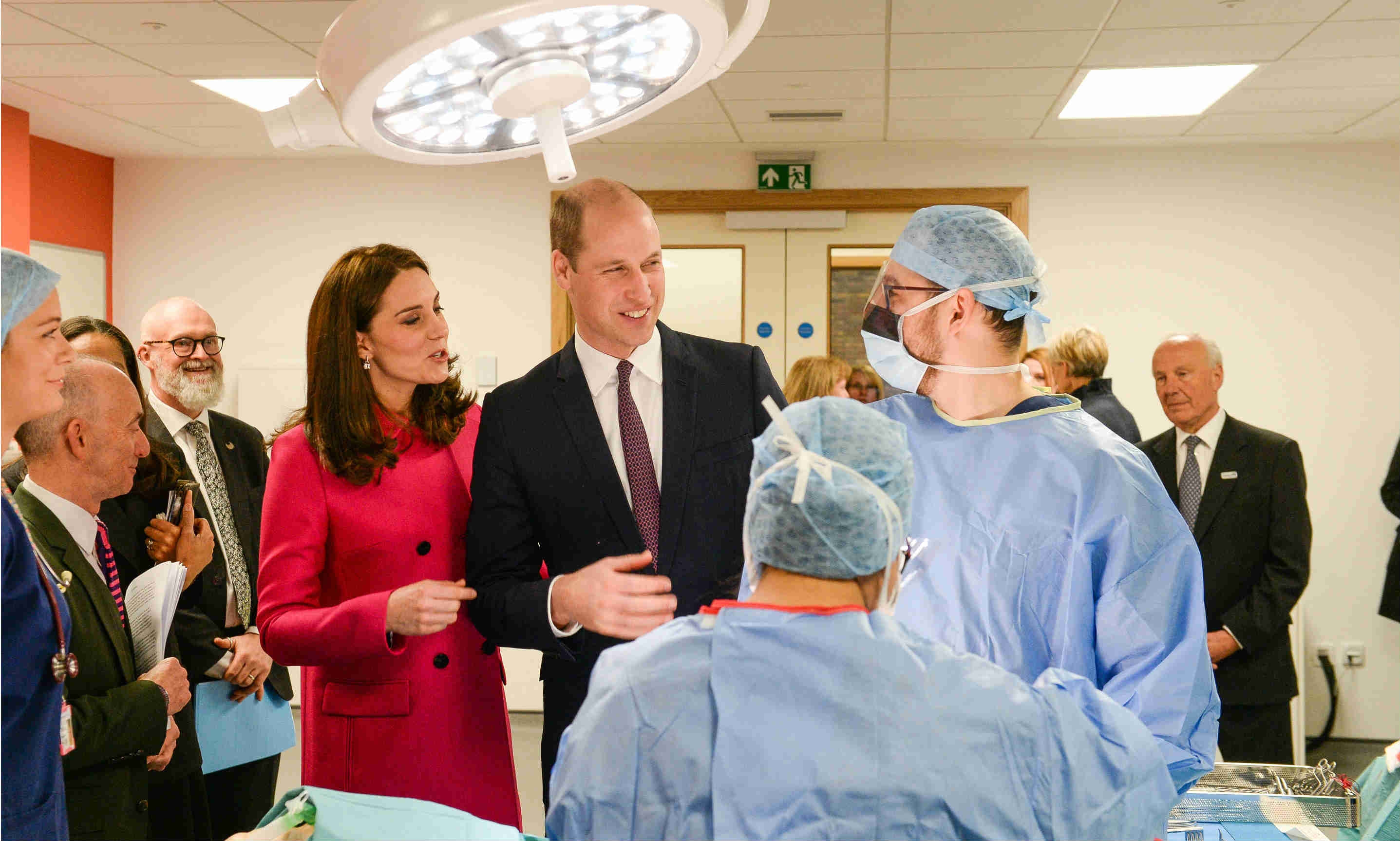The Duke and Duchess of Cambridge have officially opened Coventry University’s new Science and Health Building, project managed by AECOM. Their Royal Highnesses met staff and students yesterday who demonstrated how the £59 million building is transforming training opportunities for nurses, paramedics, midwives and other health professionals.
The Royal couple followed the route of a fictional patient and witnessed students taking part in hands-on simulations within the facility’s ambulance, hospital wards and operating theatre. These practical experiences are designed to replicate the situations students could face in their future careers – but using actors or simulators instead of real patients.
The Duke and Duchess of Cambridge also saw inside one of two houses incorporated into the building that aim to give students realistic experiences of working within people’s homes and are equipped with some of the latest assistive living and augmented reality technologies.
AECOM provided services for the development including Project Management, Contract Administration and acted as Construction, Design and Management (CDM) Principal Designer during the design, procurement and construction.
The facility, which opened for teaching in October, is the only one of its kind where students will be able to train to care for a patient at every stage of their medical experience: from paramedics arriving at their home and their subsequent ambulance journey, to their stay in hospital, through to discharge and rehabilitation.
The building is not only about training for those on healthcare courses, but brings all of Coventry University’s Faculty of Health and Life Sciences’ practical facilities under one roof for the first time, including professional-standard laboratories and Olympic-grade fitness and sports research areas.
A laboratory, called Lab+, is the first industry-grade education-based laboratory of its kind in the country, and can host more than 250 students at once. Sports research and teaching facilities include an environmental chamber that can simulate the altitude of Mount Everest, a running track, biomechanics area and 3D motion capture camera equipment. There is also a sports therapy clinic which is open to the public.
Richard Tunstall, Regional Director, AECOM, said: “It was a great honour to have the Duke and Duchess visit a project that AECOM successfully completed by providing leadership and clear direction to project teams throughout the scheme. It is clear from the visit that the Duke and Duchess were impressed by the innovative and modern facility, which will meet the requirements of future teaching in a stimulating and inspiring environment.”
John Latham, Vice-Chancellor of Coventry University, said:
“It was an honour for everyone involved in the day to show the Duke and Duchess of Cambridge how our new Science and Health Building immerses students in the realities of their profession.
“We were proud to demonstrate the innovative teaching and hands-on activities that are transforming the experiences of our nursing and healthcare students. Their Royal Highnesses opening the building marked a new phase in our commitment to offer some of the finest healthcare teaching in the UK.
“This was an important day for our staff, students, our partners and the city of Coventry.”
The Science and Health Building was recently visited by the British Army’s ‘Ice Maiden’ team before their AECOM-sponsored expedition across the Antarctica, which is due to complete soon. The six adventurers visited the university’s environmental chamber in the new Science and Health building for a series of tests back in November. Part of the expedition is a research project looking at the effects of extreme conditions on women’s bodies; specifically how their bodies change after a prolonged period of exercise at an altitude of 3,000m, the height at which most of the Antarctic is above sea level.
The team was put through their paces on the running machine inside the environmental chamber. The altitude was set at 3000m with the Ice Maidens running at increasing speeds until they became exhausted. The measurements included finding out how much oxygen the women consumed, how efficiently they used oxygen at a given speed, how much fat they used to fuel exercise and how much oxygen was in their blood throughout the test. The team will return to undergo the same tests again in the facility once they have completed their expedition later this month. The two sets of results will then be analysed to find out how their bodies changed during the treacherous expedition.
The Science and Health Building, in Whitefriars Street, in Coventry city centre, is used for teaching undergraduates, postgraduates and for research, as well as playing an important role in the community. Some of the facilities will host elite athletes for training, community groups, and public events as well as giving school children a chance to experience university life.
Following the royal visit, space medicine expert, anesthetist and television presenter Dr Kevin Fong delivered a keynote speech to invited guests.


